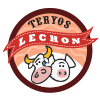Lechon, a deliciously roasted whole pig, is not only a staple in Filipino celebrations but also a significant cultural symbol in the Philippines. Its crispy skin and tender, flavorful meat have made it a favorite at feasts, fiestas, and family gatherings. As its popularity continues to grow, so does the opportunity for entrepreneurial ventures centered around this beloved dish.
The Popularity of Lechon

Lechon is more than just a dish in the Philippines; it is a culinary tradition that brings people together. The pig is marinated, stuffed with herbs and spices, and then roasted over an open fire or in a specialized oven until its skin becomes irresistibly crispy. The process is time-consuming and labor-intensive, but the result is a mouth-watering delicacy that is hard to resist.
The demand for lechon is particularly high during holidays, weddings, and other special occasions. Its significance extends beyond the Philippines, with variations of lechon found in countries such as Spain and Latin American nations, where it is also cherished. This widespread appeal creates a vast market for lechon, both locally and internationally.
Market Analysis
Before diving into the lechon business, it’s essential to understand the market dynamics. The lechon market can be segmented into several categories:
- Occasional Catering: High demand during holidays, festivals, and celebrations.
- Daily Sales: Restaurants and food stalls offering lechon as part of their regular menu.
- Exports: Frozen or pre-cooked lechon products for international markets.
- Specialty Products: Lechon-based dishes such as lechon kawali, lechon paksiw, and lechon belly rolls.
The key to success in this market is identifying the right segment to target and tailoring your business model accordingly. For instance, focusing on catering for events might require a different approach compared to running a daily food stall.
Investment Requirements
Starting a lechon business involves several considerations and investments:
- Initial Capital: The amount of capital required can vary depending on the scale of the business. A small-scale operation might need as little as Php50,000, while a larger enterprise could require upwards of Php500,000.
- Equipment: Essential equipment includes roasting pits or ovens, knives, cutting boards, and transportation vehicles for delivery services.
- Location: A strategic location is crucial. For restaurants or food stalls, high foot traffic areas are ideal. For catering services, proximity to event venues can be beneficial.
- Permits and Licenses: Ensure all necessary health and business permits are obtained to comply with local regulations.
- Staff: Skilled workers are needed to prepare and cook lechon to perfection. Training programs might be necessary to maintain quality standards.
Setting Up the Business
Once the initial investments are in place, the next step is setting up the business. Here are key aspects to consider:
- Sourcing Quality Ingredients: The quality of the pig and the ingredients used for marination are crucial. Establish relationships with reliable suppliers to ensure a consistent supply of high-quality pigs.
- Developing a Unique Recipe: While traditional lechon recipes are popular, developing a unique blend of spices and herbs can set your business apart. Experiment with different flavors to create a signature taste.
- Efficient Roasting Process: Mastering the roasting process is essential. Whether using traditional open fire or modern ovens, consistency in cooking is key to achieving the desired texture and flavor.
- Packaging and Presentation: For catering and delivery services, how lechon is packaged can impact customer satisfaction. Ensure that the packaging maintains the dish’s quality and presents it attractively.
Marketing Strategies
Effective marketing can make or break a lechon business. Here are some strategies to consider:
- Social Media Presence: Leverage social media platforms like Facebook, Instagram, and TikTok to showcase your lechon. Post high-quality photos and videos of the roasting process and finished product to entice potential customers.
- Customer Reviews and Testimonials: Encourage satisfied customers to leave reviews and testimonials. Positive feedback can significantly influence potential customers.
- Collaborations and Sponsorships: Partner with event planners, wedding organizers, and corporate clients to secure bulk orders. Sponsoring local events can also increase visibility.
- Promotions and Discounts: Offer promotions during holidays and special occasions to attract new customers. Loyalty programs for repeat customers can also boost sales.
- Website and Online Ordering: A professional website with an online ordering system can streamline the purchasing process and reach a broader audience.
Challenges and Solutions
Like any business, a lechon venture comes with its challenges. Here are some common issues and potential solutions:
- Seasonal Demand: Lechon demand peaks during certain times of the year. To mitigate this, diversify the product offerings to include lechon-based dishes that can be sold year-round.
- Quality Control: Maintaining consistent quality can be challenging, especially as the business scales. Implement strict quality control measures and regular training for staff.
- Competition: The lechon market is competitive. Differentiate your business through unique recipes, exceptional customer service, and effective branding.
- Logistics: Managing logistics for delivery can be complex, particularly for large orders. Invest in reliable transportation and develop an efficient delivery system to ensure timely service.
Success Stories
Several successful lechon businesses serve as inspiration for aspiring entrepreneurs:
- Baliwag Lechon: Starting as a small family business, Baliwag Lechon has grown into one of the most popular lechon brands in the Philippines, known for its consistent quality and flavor.
- Cebu’s Rico’s Lechon: Rico’s Lechon, renowned for its unique Cebu-style lechon, has expanded from a local favorite to a nationally recognized brand, opening branches in major cities.
- Zubuchon: Featured by Anthony Bourdain as the “best pig ever,” Zubuchon has capitalized on its media exposure and now operates several outlets, offering a range of lechon dishes.
Future Trends
The lechon business is poised for growth, with several trends shaping its future:
- Health-Conscious Variations: As consumers become more health-conscious, offering leaner cuts of lechon or plant-based alternatives can attract a new customer base.
- Sustainable Practices: Adopting sustainable and ethical farming practices can appeal to environmentally conscious consumers. Highlighting these practices in marketing can enhance the brand’s image.
- Technological Integration: Utilizing technology for online orders, delivery tracking, and customer feedback can streamline operations and improve customer satisfaction.
- Global Expansion: With the rising popularity of Filipino cuisine worldwide, there are opportunities to introduce lechon to international markets through franchising or export.
Conclusion
The lechon business presents a flavorful opportunity for entrepreneurs with a passion for culinary traditions and a knack for business. By understanding the market dynamics, making strategic investments, and implementing effective marketing strategies, aspiring lechon entrepreneurs can carve out a successful niche in this competitive industry. With its deep cultural roots and growing global appeal, lechon is not just a dish but a symbol of celebration and community, making it a promising venture for those ready to take on the challenge.




0 Comments